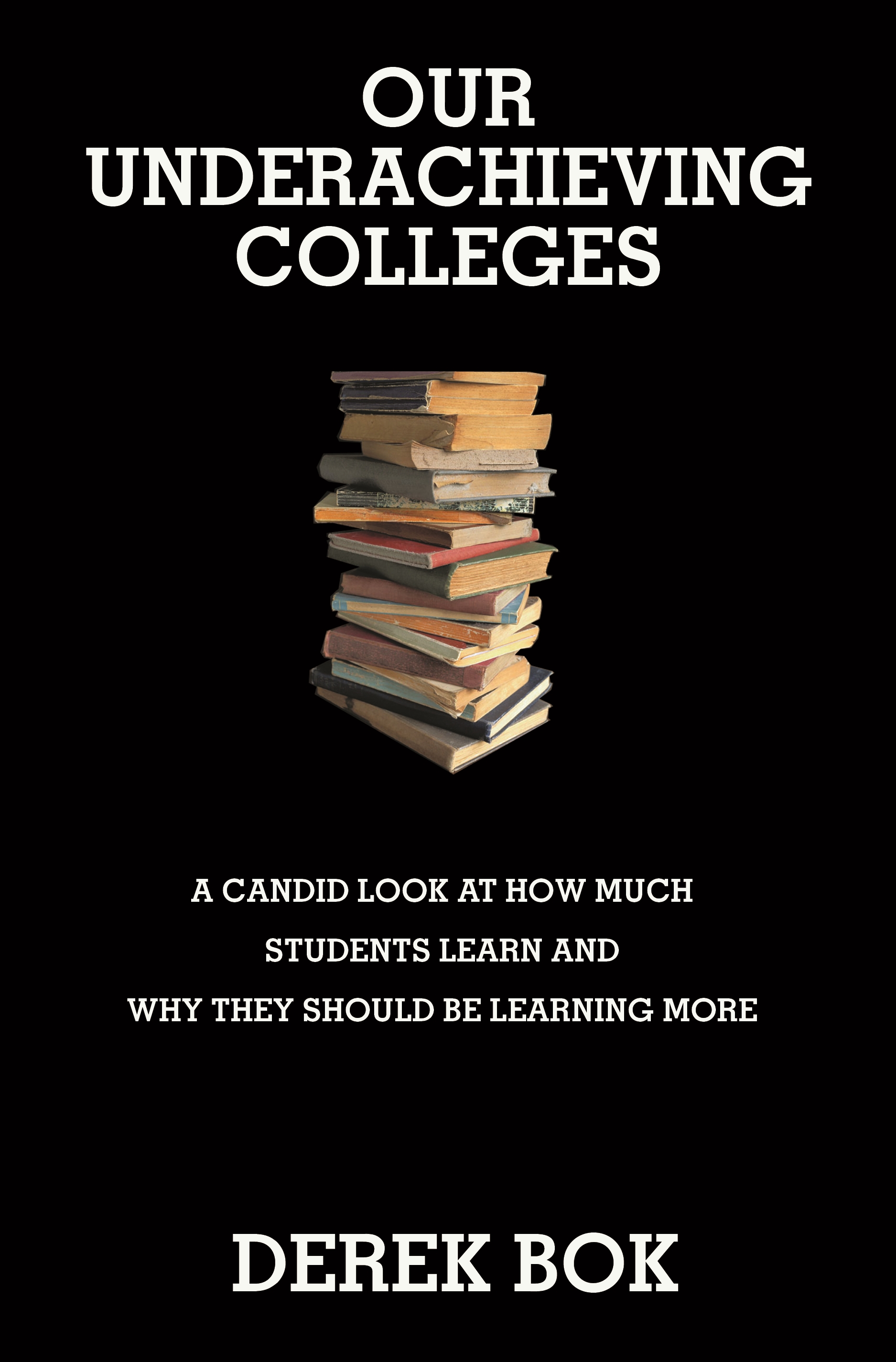Our Underachieving Colleges: A candid look at how much students learn and why they should be learning more
Princeton University Press, $52.95 hb, 413 pp
When research is not enough
On a cold, grey day in February this year, economist Larry H. Summers announced his resignation as president of Harvard. Though some undergraduates gathered in Harvard Yard to wave signs saying ‘Stay Summers Stay’, the rift with faculty and the governing board proved too much. Summers issued a dignified letter to the Harvard community, shook hands with well-wishers, and disappeared.
Much media commentary on his resignation suggested a hostile faculty had campaigned against a visionary leader. Lawyer Alan Dershowitz called the outcome a ‘dubious victory for the politically correct’. An Op-Ed writer in the Wall Street Journal described the move as a ‘coup d’École’, citing clashes between Summers and professors over a petition to divest from Israel, comments about the under-representation of women in science, and clashes with prominent black faculty.
Such analysis restates a now familiar critique of American higher education. Captured by shadowy forces of ideology, professors allegedly resist leadership from above and criticism from students below. Summers becomes a convenient symbol of the alleged ungovernability of the American university, a man whose plans for revising curriculum and a new campus to accommodate growth sparked a revolt of the tenured.
Since Harvard remains an endless source of copy, no doubt books will appear soon to dissect the Summers years (2001–6). These will likely show a more complex narrative at work, and may also highlight the often unhappy history of leadership at the richest and most famous university on the planet. President Abbott Lawrence Lowell (1909–33) once described Harvard administration as ‘tyranny tempered by assassination’. His predecessor, Charles William Eliot (1869–1909), was asked to define the single most important attribute for a successful college president: ‘The capacity to inflict pain,’ he answered confidently.
One former Harvard president unlikely to comment on the fall of Larry Summers is Derek Curtis Bok (1971–91). Though seventy-six and long retired from university administration, Bok resumed the role of president in July, as the Harvard Corporation scrambled to find a long-term successor.
Yet Bok’s most recent book, Our Underachieving Colleges, published just before Summers strode out to face the media scrum, signals clearly his concerns about American higher education. Bok is unmoved by conventional pieties about universities held to ransom by tenured radicals. He rejects the doomsday tone of much recent writing on higher education, with its claims of mediocrity and subversion by postmodernists (has a passing intellectual current ever been credited with such apparent influence?). Such polemics, he argues, are long on rhetoric but short on evidence.
Instead, Bok is worried by a pervasive conservatism in higher education, specifically the refusal by professors to confront evidence about poor teaching. His concern is less content than process – without more attention to classroom experience, America’s myriad colleges and research universities will not meet their obligations to students or communities.
This is brave territory for Bok to explore, because assertions about teaching quality inevitably run into problems of data. The unreliable nature of teaching quality measures is a core issue for universities: since only research can be confidently counted and ranked, research league tables dominate discussions of performance. With few proxies of overall quality available, students may select a university that focuses all its resources on research performance rather than on pastoral care and classroom excellence. Reputation is no guarantee of a great student experience.
Bok is careful to survey beyond America’s élite universities to a wide array of institutions. Yet he need look no further than Cambridge, Massachusetts, for examples of dissatisfied students. Take, for example, Privilege, by recent graduate Ross Gregory Douthat, published in New York last year. In often startling prose, Douthat catalogues his cumulative disappointment with the Harvard undergraduate experience: students obsessed with networking (‘a Harvard education is a four-year scramble to ingratiate oneself’); professors concerned with protecting research time; incoherent electives; grade inflation; and classes taken by young teaching assistants desperately concerned about their career prospects. ‘I give out mainly As,’ one TA tells Douthat and his classmates. ‘A few Bs maybe. But I don’t like to, you know?’
Bok understands the pressures that would leave teaching little valued in institutions that claim to be great centres of education. He argues that academics and university leaders ignore evidence about the futility of many time-honoured teaching methods. Professors resist taking instruction; they see teaching as innate, rather than a skill to be learned and developed. As Bok observes, ‘Since faculty members normally keep abreast of published work in their fields, the content of their courses tends to be reasonably up to date. The same cannot be said of their teaching methods.’
Continue reading for only $10 per month. Subscribe and gain full access to Australian Book Review. Already a subscriber? Sign in. If you need assistance, feel free to contact us.












Leave a comment
If you are an ABR subscriber, you will need to sign in to post a comment.
If you have forgotten your sign in details, or if you receive an error message when trying to submit your comment, please email your comment (and the name of the article to which it relates) to ABR Comments. We will review your comment and, subject to approval, we will post it under your name.
Please note that all comments must be approved by ABR and comply with our Terms & Conditions.